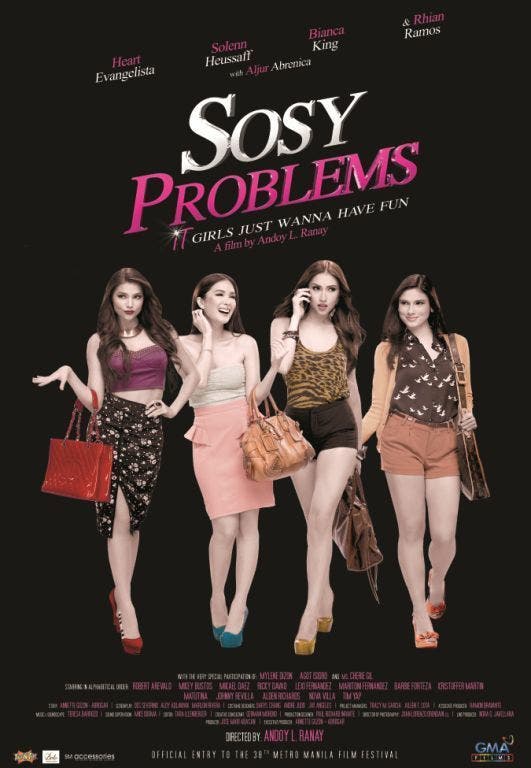Some things may seem so basic and should be part of common sense. But actually, many do not think out issues carefully. People do things mostly on impulse and those who are not impulsive, analyze a little and then just assume things will work out on what they have decided after partial thought. They take action based on goals that are not sufficiently clear or detailed. The biggest example of this phenomenon is the hundreds of thousands of OFWs who invest their hard-earned savings on businesses offered to them that are clearly unsuitable to their particular situations. And why did they invest? They were simply driven by their general desire to earn more money. The how, the when and the why issues do not even get serious attention. They rush to invest without defining their expectations. Worse, they do not even compute what they will make out of it versus the possible risks of failure. They invest based on the assurance of trusted friends and relations who are not even qualified nor experienced enough to give them such advice.
This kind of confused decision process is demonstrated every day. It is so common for OFW families to rush investing in tricycles, FX taxis, sari-sari stores, etc, etc. When asked why they invested, nine out of ten are not able to say why except to say, “I wanted to get into business and make money”. Their objective of getting into business is valid. But in reality, the investment does not serve the real purpose of making money. The thought processes, unfortunately, end there. No further thinking goes into asking whether or not the particular business will, in fact, make money for them. They listened to stories that their investments would be profitable based on the experiences of others. They should have at least asked themselves two more questions. What is it that I should earn and how will this investment make me earn that amount? The failure to ask these questions is precisely because people generally do not define their purpose clear enough so that they can correctly study it sufficiently think it through before they decide.
Cultural nuances
There are three Tagalog phrases that, to my mind, reflect perhaps this cultural flaw in our thinking processes. These are: “Pwede Na (That’s good enough), Medyo (More or less) and Akala ko” (I thought that, or I assumed that). These words show thinking that is not exact and accurate. Unfortunately, this kind of thinking finds itself in the work place resulting in mediocre performance.
Overseas, the Filipino worker behaves differently. He is extremely productive and the reason is because he is given specific and detailed work objectives, which are measured on a regular basis. The reason is clear. Rules and other work-related systems are required. Supervision is consistent. Proper tools are provided and the workers are given feedback of their productivity very quickly and regularly. There is no room for imprecision.
In most local organizations, decision processes are mostly influenced by behavioral or cultural feelings and practices. Short cuts are more the rule than the exception. Any questions or doubts, if any, are resolved based on assumptions. Even where strict rules on quality control and management systems are in place, the quality of action still, more often than not, falls below standards. Supervision is perceived most lacking when it comes to service industries. When supervisors face a situation where they have to choose to stick by the rules versus cutting work time or “hurting the feelings” of either clients or co-employees, rationalization wins. For example, they start thinking that the employees will feel bad if their attention is called and cannot work well anyway. So, they allow them not to follow the strict rules. Or they need to meet a deadline so they allow short-cuts. All the other employees see these bad examples. Eventually, everybody follows the wrong standard and quality suffers.
How would you overcome these behavioral or cultural practices? One way is to start on the financial aspect of your life. After all, finance will probably be the most precise part of your personal life. Practice in being precise in the management of personal finances, encourages care in the thinking process in work, family and other relationships.
The first exercise in managing personal finances is to know where you are financially at any point in life. Our CFE Team gives the basic principles and “commandments” but reminds you that you cannot start on a journey without a map. A Personal Statement of Assets and Liabilities and Personal Income and Expense Statement are requirements to get started. With these tools, you can be more precise in moving forward to make your Personal Financial Plan. With such a plan, you can draw up alternative road maps to reach the same personal financial goal and to better assess the opportunities that come up. No short cuts, no “Pwede na”, no Akala Ko”, no “Medyo” can be allowed.
MONEY IS A FAMILY MATTER
Your personal financial plan should always involve your family. After all, you are supporting a family member or relative, one way or the other. It is common sense to involve them in the planning cycle from the very beginning. But you might be tempted to give a different picture of your earnings either higher or lower than what it actually is. In truth, family/relatives left behind will always think that you will earn a big amount and that there will always be enough to share with them.
When you first leave, you will not know the exact circumstances of your employment and living conditions. It is best that you do not make promises to send any money precisely because of the unknown. However, it is best to understand and agree on exactly what your family priorities are, order of importance and amounts for each that the family needs. Send only the amounts needed for each priority in the order of importance.
Before leaving, make it a point to bond with your family. Include budgeting and coping with the financial crisis as part of your bonding activity. An admirable couple I know share their bonding activities. They have two teenage boys who they believe are their biggest helpers in saving and managing their family finances.
They talk about money matters to their kids to show them that they are trusted and considered matured and responsible. They are allowed involvement and some degree of independence. They can suggest where the cuts in expenses will be and they know that part of the savings will go to their vacation fund.
Here are some of their practices:
– Have a “positive” attitude during discussions on money matters by sounding confident, honest and open.
– Ask a lot of questions to find out where the kids are coming from and there should be no lectures especially no “talk down” as if the kids do not know anything. Treat them with respect.
– Old money disagreements should never be brought up again.
– Have a vacation fund. Everybody agrees on where the next vacation should be with a target cost. Everybody agrees on the amount to be slashed from the household budget that will go into the vacation fund.
– Before going to the grocery, everybody agrees to a grocery list. Everybody goes to the grocery and strictly follows the list…very strict rule “ What is not on the list, cannot be bought.”
– Agreement not to have any househelp. Everyone agrees to what each person is assigned in house chores. No need to pay or incentivize anyone because the goal is to have a vacation as planned. The vacation is already the incentive.
– Budget for electricity and water is clearly understood. They know how long each appliance can be used to keep within the budget.
– Cell phone usage is strictly charged to each one’s personal allowance.
– Recreational activities are chosen so that they are not costly.
Some Recreation and Family bonding moments:
– Quality and good quantity of bonding time of 5 hours with the kids – chit chatting, laughing and a lot of horsing around at the cost of PhP45.00 – a deck of cards! They learned/re-learned and played various card games from 10 pm to past 3 am on a weekend.
– No eating out. They each know how to cook.
– freesbie playing in the park (many free parks including Luneta and UP Sunken Garden
– play a low-cost sport together like softball, basketball, garden badminton, hulahoop, yoyo,etc.
– movie watching at home instead of the malls
If your family does not live with you, you might consider sharing these with your spouse back home. Ask them to start implementing some of it even in your absence. When you go home for a vacation, make sure that you sit down for a serious discussion to make a personal financial plan involving your family. Then, you can truly say that your whole family is one in clarity of purpose for your sacrifice living in a foreign land.


 Do you know that credit card issuers and their collection agents should observe good faith and refrain from engaging in unscrupulous or untoward acts, to the extent of harassing and humiliating the credit card holder?
Do you know that credit card issuers and their collection agents should observe good faith and refrain from engaging in unscrupulous or untoward acts, to the extent of harassing and humiliating the credit card holder?